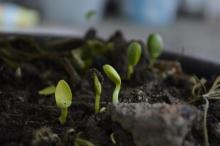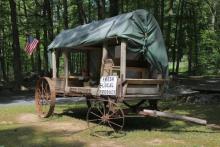Living Off The Grid: 7 Natural Fertilizers For Your Garden
More and more people are trying to live life as organically as possible – and the sentiment applies to more than just the food that’s consumed. When growing your own food, it is possible to be successful even without the use of chemical-filled fertilizers and chemical bug sprays. Chemical products are harmful to our body, the environment, and all of the inhabitants upon Unci Maka - Grandmother Earth.










